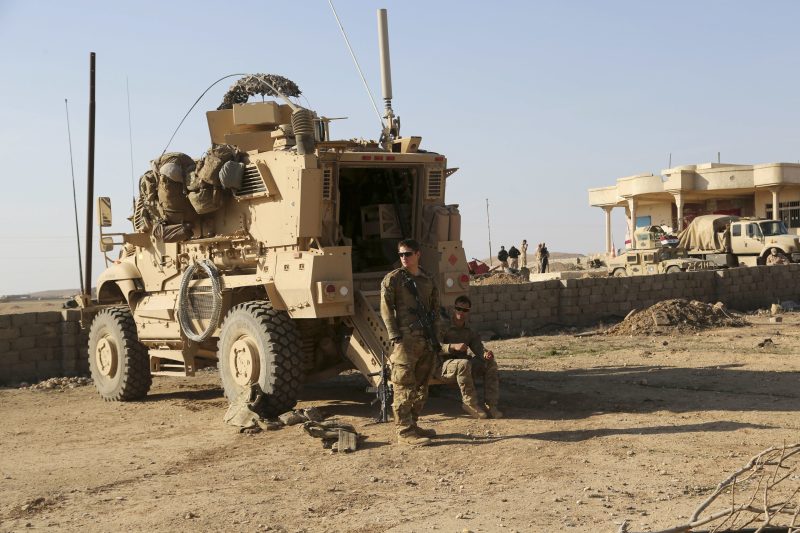The situation in the Middle East continues to be a complex and evolving one. Recently, the U.S. government has downplayed talks of a withdrawal from Iraq while reaffirming their commitment to keeping troops stationed in Syria. This decision has generated mixed reactions and has sparked debates regarding the U.S.’s role in the region.
On the one hand, proponents of maintaining a military presence in both Iraq and Syria argue that doing so is crucial for combating terrorist threats and ensuring regional stability. The continued presence of U.S. troops in these countries is seen as a deterrent against extremist groups that may seek to exploit power vacuums and launch attacks in the region and beyond.
Moreover, proponents of this approach believe that a sustained American military presence can help local governments in Iraq and Syria to maintain security and foster stability. By training local forces, providing intelligence support, and conducting counterterrorism operations, U.S. troops are seen as playing a vital role in preventing the resurgence of extremist groups and promoting peace and security in the region.
On the other hand, critics of the U.S.’s military involvement in Iraq and Syria argue that it only contributes to further instability and conflict in the region. They argue that the presence of American troops can exacerbate tensions with local populations, fuel anti-American sentiment, and potentially lead to unintended consequences such as civilian casualties and political backlash.
Furthermore, critics of the U.S.’s military presence in Iraq and Syria raise questions about the long-term strategy and objectives of the U.S. in the region. Some argue that the U.S. should focus more on diplomatic and political solutions rather than relying on military force, emphasizing the importance of engaging with local actors and regional partners to address underlying issues and promote sustainable peace and stability.
In conclusion, the U.S.’s decision to downplay talks of a withdrawal from Iraq and maintain troops in Syria reflects the complex and challenging nature of the situation in the Middle East. While there are valid arguments both in favor of and against the U.S.’s military involvement in the region, what is clear is the need for a comprehensive and nuanced approach that takes into account the interests of local populations, regional dynamics, and global security concerns. Ultimately, finding a balance between military action and diplomatic engagement will be crucial in addressing the underlying challenges and building a more stable and peaceful future for the Middle East.
